Moving to the Netherlands from Dubai in 2021 takes careful planning and attention to details and documentation. We provide everything you need to know before moving from Dubai to the Netherlands. Start your move today by obtaining up to 6 competitive shipping to the Netherlands quotations FREE.
The Netherlands is famed for tulips, windmills and coffee shops. With low crime rates, English is widely spoken and understood and a tolerant, progressive outlook, everything looks very positive, but what are the real challenges people face when they move to the Netherlands?
The key to a successful move to the Netherlands is planning. Taxes are relatively high, there is a housing shortage in certain areas and renting accommodation can be a challenge. Furthermore, the Netherlands is a densely populated country and so congestion is becoming an increasing issue. There are also important decisions to be made on schooling, healthcare and finances. Fortunately, we cover all of this and more in our ultimate moving to the Netherlands guide 2020.
The Netherlands meaning “Low Countries”, informally known as Holland, is a Western European country of which only 50% of its land lies more than 1 meter above sea level.
If you are moving to the Netherlands, the good news here is moving your belongings with you to the country is relatively easy. This is because the government doesn't tax personal belongings provided they are deemed used and have been in your possession for a reasonable amount of time.
From a personal perspective, even if you have to go through a complicated immigration process, the benefits you will enjoy once you finally settle in the country outweigh the challenges you will face. For skilled individuals, moving to a country with a thriving entrepreneurial scene will also bring countless opportunities.
For parents moving with their kids, the Netherlands has an excellent education system that will surely benefit both young and university-level learners. The Dutch people also take pride in their premium-quality social security and fantastic work-life balance.
Today the Netherlands is a free-thinking, liberal and prosperous country. Most people are very tolerant and embrace other cultures and religions. The country has a rich culture of arts, music and history
Although English, French and German are all widely spoken, the Dutch are very proud of their language and it is advisable to learn ahead of or upon your arrival. There is no doubt local people will warm a little more towards people who have taken time to learn at least the basics.

If it’s your first time in the Netherlands, you might find yourself surprised at how people lean towards another person for a quick cheek peck. This is their way of saying hello and bidding farewell to someone. This, however, is not applicable between acquaintances and people you just met. Kissing is also a tradition that is common between women and women and women and men. Two men meeting together only greet with a handshake.
Dutch people are fairly straightforward when they communicate with others. Either with what they are saying, in their actions, or in their comment about how someone looks. They will not hold back when it comes to giving their opinion.
They are quite blunt regardless of the circumstance and are likely to express their feelings and what they have in mind about topics that other countries may consider taboo.
Expats from a more conservative culture may find this as off-putting at first, but most of them learned to appreciate the Dutch’s straightforward honesty. The good side of this kind of communication is that everything, including relationships, is clear. Misunderstandings are resolved instantaneously, too. You should not take this personally because that’s just who they are.
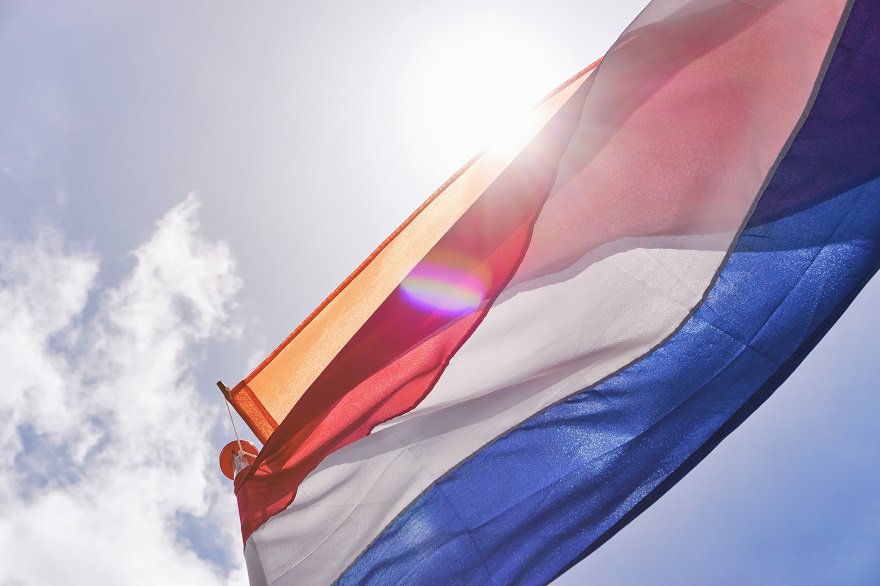
The national flag of the Netherlands is red, white and blue, however, the patriotic colour for the Dutch is orange.
If there’s one thing the Dutch normally dislikes, that would be spontaneity. Get-togethers and meetings have to be scheduled ahead of time - mostly a few weeks earlier. Some Dutch even schedule downtime so that they don’t end up compromising anything. With this, don’t be surprised or get offended if your Dutch friend is only available once every three weeks for a quick lunch date, as this is entirely normal. Remember, if they’re avoiding you, they will be upfront about it.
For the Dutch, every penny counts. This may be because they pay very high taxes, or simply because it’s in their blood, but the Dutch are typically quite frugal. Unnecessary splurging is not in their vocabulary as their expenses are generally kept within budget.
Dutch frugality has something to do with the expression ‘going Dutch,’ which only means dividing the bill equally. If you find yourself on a date, don’t be surprised if the Dutch who asked you to go on a date will only pay for their share of the dinner bill. Again, don’t take this personally and think that they did not have a good time with you.
The country’s flag has three colours - blue, white, and red, but their national colour is orange. Many wonder why this is the case, and the answer to that is simply because the country respects the royal family - the House Orange-Nassau monarch. The colour is associated with national pride and patriotism. The Dutch wear orange as they celebrate the King day every 27th of April.
The Dutch’s obsession with the orange colour is also associated with the fact they were the first to cultivate orange carrots. The said act was the Dutch farmers’ way of showing respect and celebrating William of Orange, the monarch who led them to independence. Since then, the orange carrot has become so widespread and popular that it has become the vegetable’s default colour.
Starting life in the Netherlands can be expensive. If you want to minimize your monthly expenses, you can go for water and electricity meters, live in the suburbs, or choose public schooling
Living in the Netherlands can indeed be quite expensive, but living here is nowhere near the prices of commodities and utilities in other western European countries. If you are looking for affordable general services, excellent public infrastructure, and lots of green spaces. In that case, the Netherlands has so much to offer, including Haarlem, The Hague, Amstelveen, and Utrecht. Compared to Germany, Belgium, UK, and France, living in the Netherlands is generally cheaper. The only downside is the latter offers a lesser pay rate compared to the former.
Housing plays a huge part in any ex-pat settling in the Netherlands’ monthly cost of living. With low supply and higher demand for state-of-the-art rental properties, you can almost predict what happens in the real estate market. Students and single ex-pats living on modest salaries can surely benefit from house sharing. But the downside is, it won’t always guarantee similar conditions you are accustomed to in your country of origin.
The good news is food is affordable in the Netherlands. You can expect to pay somewhere between €8 and €15 for a hearty lunch in a restaurant, cafe, or bar. A bakery snack or sandwich may cost you €5. A pint of local beer costs between €3.50 and €5, while a regular cup of coffee costs around €3 to €3.50. A typical McDonald’s meal for one person usually costs €7.50.
A family of four is expected to need around €4,236 per month. On the other hand, a single person needs approximately €2,279 per month to live a reasonably decent lifestyle in the country.
If you think €4,236 or €2,279 is expensive, you might want to move to the suburbs or share your house with another ex-pat or local looking for a rental property. You can also opt for a longer lease. Another option to lower your monthly expenses is to invest in a bicycle instead of buying a car or use the public transportation system.
Though you initially shell out a large sum of money for the bike, you get to save a lot of cash for fare, gas, or car maintenance. Plus, you get to exercise, too. Lastly, you can also save money if you cook your meals instead of dining in restaurants.
When moving to the Netherlands, these are the most expensive cities in the Netherlands are Amsterdam, The Hague, Utrecht, and Rotterdam. The less expensive cities, on the other hand, include the less populated areas. The countryside offers a cheaper lifestyle cost compared to the bigger cities we previously mentioned. The most affordable regions, to be specific, include Hilversum, Amstelveen, and Haarlem.
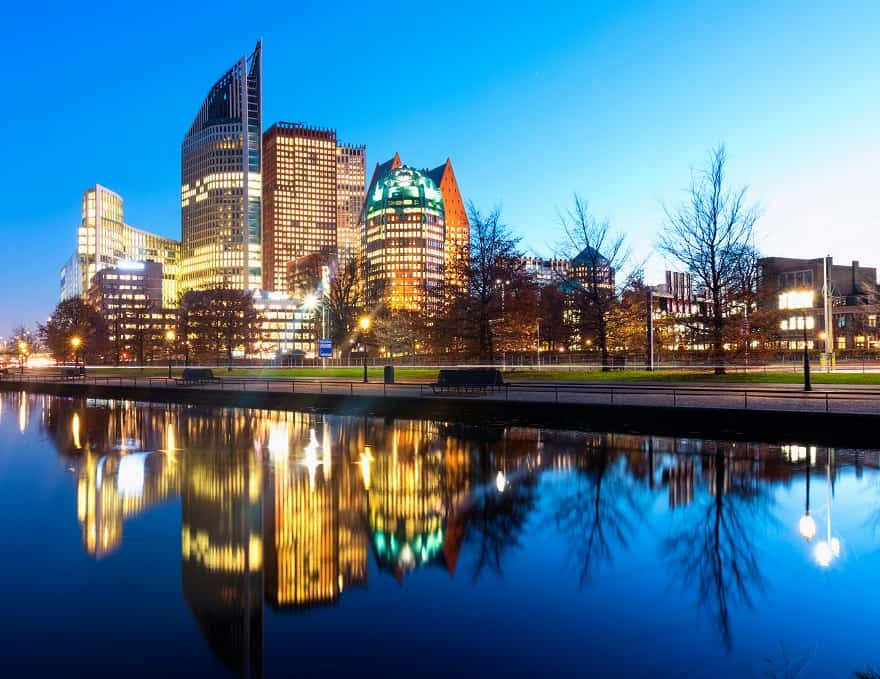
For ex-pats, the healthcare cost in the Netherlands has to be covered out-of-pocket. The standard healthcare package usually costs 80 to 130 EUR monthly. But before the health insurance can pay for your hospitalization expenses, you need to pay a 385 EUR deductible.
The cost of education will depend on whether you send your kids to a private or public school. Public school education is free. The parents are, however, obliged to contribute something for after school activities and educational trips. But don’t worry as this contribution only costs up to 100 EUR per year. Suppose you choose to send your kids to an international school. In that case, you should prepare around 3,600 to 6,000 EUR per year for government-subsidized private schools and approximately 12,000 to 24,000 EUR per year for fully private international schools.
Most ex-pat children are sent to international schools. The reason behind such a decision of their parents is strongly tied to their family's culture or the child's future. Children of American couples might be sent to an international school to earn an American diploma.
This can make it easier for their kids to get work should they decide to go back to their home country. With this educational goal in mind, you have to brace yourself to pay more than 30,000 SGD annually as tuition fees.
When it comes to healthcare, it can't be denied that the country has an excellent system. You have to take note, however, that this is not free. Workers that pay for a Central Provident Fund (CPF) can take advantage of the government-prescribed health insurance and also receive subsidized healthcare. If, however, you don't pay for the CPF, you need to subscribe to private health insurance.
As mentioned above, the Netherlands is quite an expensive country to settle in. In exchange for the higher cost of living, you can expect a relatively well-developed public infrastructure system.
Aside from being well-developed, the country’s public transportation is also cheap. Inter-city travel only charged around 1 EUR per journey. The price of the fare is also per kilometer. If you have a reliable and inexpensive public transportation system, you don’t need to get yourself a car. If, however, you want a vehicle of your own, it’s more cost-effective and practical to get yourself a bicycle.
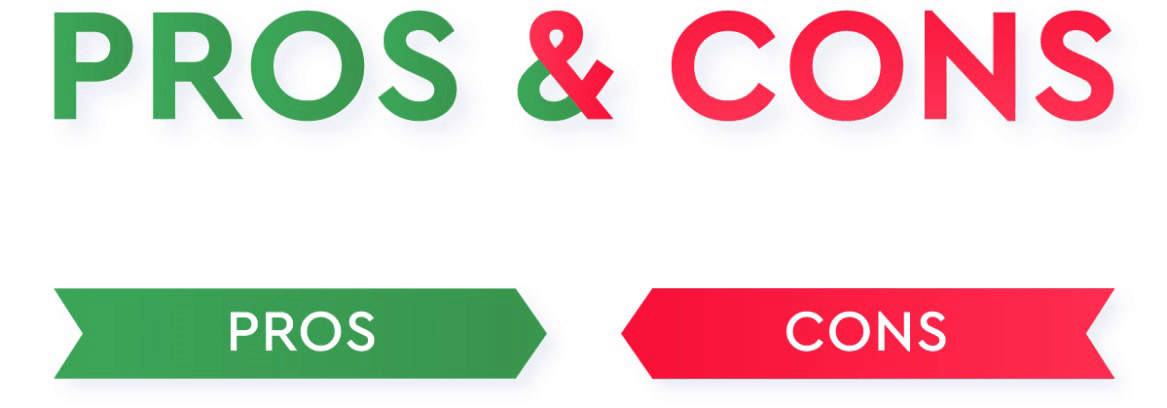
When you’re thinking of relocating to the Netherlands, physically moving your household items won’t be challenging. Most things ex-pats bring to the country are duty-free. Health-wise, there is nothing serious to take care of in this department, so don’t expect to do more aside from the routine vaccinations. There are lesser health risks in the Netherlands, and their immigration law has not required any mandatory health check-up upon one’s entry.
However, take note that pet owners will have to go through a few more steps when they decide to relocate with their pets. The extent of such additional processes will vary significantly based on whether or not you originated from an EU country. If you’re from the EU, you can sort your requirements within a couple of weeks. If you’re from a third country, however, start the process a few months earlier. As you may have figured out, everything will be more accessible if you’re migrating from the EU. But don’t worry if you’re not because this guide will simplify the process for you.
When moving to the Netherlands from Dubai, importation of Household Goods and Personal Effects
For a more in-depth look at documentation please check the International Association of Movers.
If you’re a national of a third country, you will be required to secure a work permit, residence permit, and visa to work or live in the country. However, the requirements you need to submit will be dependent on the reason you will stay in the country. Ex-pats who qualified as highly-skilled workers, for example, are not required to submit an additional work permit. On the other hand, self-employed entrepreneurs need to submit extra documentation like market research or business plan to be able to get a visa.
Nationals of South Korea, Australia, the U.S., and some select countries will have it more comfortable since they won’t have to apply for a visa to immigrate to the Netherlands. All they have to present is a residence permit they can get the moment they get into the country. Citizens from the EU and EEA and ex-pats from Switzerland will have an easier time since they won’t have to go through the country’s permit or visa application process. If they have a travel ID, then that would be enough for them to work and live in the Netherlands.
Even if your visa requirements highly depend on the purpose of your stay in the Netherlands, the excellent news is, in most cases, it will be the host who will take care of your visa application. The cost of your visa will also depend on your purpose of stay. But despite this, the fees would not be that high. However, if you are applying for a self-employed visa, you will be asked to pay over 1,000 EUR as a visa application fee.
Suppose you plan to relocate to Singapore to work. Before you are allowed to work in the country, you need to secure a work permit or employment visa.
The good news is there are plenty of visas you can choose from. Take note, however, that these passes are just valid for two years and will no way guarantee a permanent resident status.
Aside from your purpose of stay, what will determine the type of documents you have to comply with will also depend on your country of origin. But, don’t worry because unless you’re an entrepreneur or investor, it would be your employer who will apply for an employment visa or work permit on your behalf.
It doesn’t matter whether you’re a European blue card holder, highly-skilled immigrant, or intracompany transferee, you need to comply with the following requisites:
There are many different types of Schengen visa, but the most common ones applicable to ex-pats working in the country include the following:
Work permit
Foreign nationals who wish to be employed in the Netherlands will be required to get a work permit. Then again, if you’re a national of Switzerland, EEA, and EU, you are exempted from this requirement. If your employment in the country is less than three months, you only need to secure a work permit. The validity of the same is only for a year. After that, you will be required to renew your pass.
Single entry permit
If you wish to work in the country for three months and beyond, the document you have to apply for is a single permit -- a combination of the work and residence permit. This is also called GVVA, and it’s a resident permit that comes with an additional document describing who your employer is and under what conditions you will be permitted to work in. You don’t need to give a separate work permit if you have this document. The good thing is you or your employer can apply for this on your behalf.
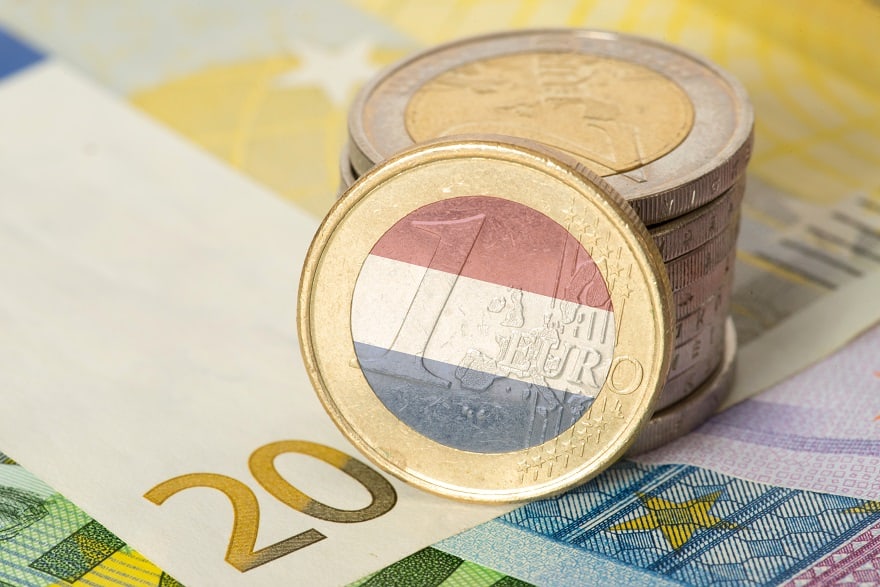
While moving to the Netherlands seems relatively simple, take note that it’s a different story when you apply for the opening of a Dutch bank account. As a general rule, non-residents are not eligible to apply for a bank account in the country. But the exception is when you register and become a legal resident of the country. In this case, opening a bank account won’t be a problem.
As mentioned above, no, non-residents are not allowed to open a bank account in the country. But, if you apply for a residence permit and present all the bank’s required documents, opening a bank account should be a breeze. The moment you sort your residency in the country and already offer your citizen service number or BSN, you can do anything.
The requirements for opening a bank account may vary between banks, but generally, you will be required to submit the following:
Some Dutch banks also require applicants to submit their residence permit, credit card balance, phone number, and employment contract. Be prepared to present these, too. Also, make sure to provide the original copies of these documents.
These are the top five banks that are very popular among ex-pats in the country:
ING is an internationally renowned bank, and it has countless branches around Europe and in selected Asian countries.
If you work and live in the Netherlands, you will be required to pay your taxes. They have several tax laws. However, the most prominent ones you need to know is the income tax. If you’re an employee in the country, know that your payroll taxes will be withheld directly from your salary. If you’re self-employed, you have to pay your taxes when you file your annual tax return.
The government decides if you will be required to file an annual tax return. If the government decides you have to, expect an email or letter every January informing you of your tax obligations. When you get this letter, make sure to get in touch with an accountant or with us to discuss the complicated tax system of the Dutch. Their tax year is the same as the calendar year. You need to submit your tax returns between March 1 to April 30.
When it comes to paying your bills in the Netherlands, one crucial thing you have to remember is you need to pay your bills before it gets assumed by the debt collectors or Incasso Bureau.
While there are plenty of options for you to pay your bill, the most common is setting up an automatic payment or paying by bank transfer. The most common online payment platforms in the Netherlands are iDEAL and PayPal. If you don’t feel secure sharing your card or bank account details online, you can go for a Paysafecard - a prepaid card you can top-up for credits.
If you’re wondering what the Netherlands’ climate is like, know that it’s temperate maritime, heavily influenced by the Atlantic and the North Sea. It has moderate winters and cool summers. You can expect a varying daytime temperature that ranges from 17°C to 20°C in the summer and 2°C to 6°C in winter. The country is small, so there is minimal climate variation between regions. Rainfall is well distributed throughout the year, with dryer periods between April to September.
5
17oC/63oF
2oC/36oF
8
72%
22oC/72oF
7oC/45oF
1oC/34oF
As you already know, the rental cost is the main reason why you need a higher monthly budget when living in the Netherlands. To get the most out of your rental contract, work with a trusted real estate professional. Every year, around 80% of the available social housing in the country is left for people with annual wages of below 37,000 EUR. The other 10% is left for people who earn more than the set amount.
The unfortunate news is ex-pats are unlikely to take advantage of this program simply because there is a very long waiting list. This means that you have to wait for years before you get a decent accommodation offer. This is why the private market is more prevalent among ex-pats.
As for the average price of a one-bedroom apartment’s monthly rent, you can expect to pay somewhere between 810 to 1,020 EUR per month. If you want a bigger home, a three-bedroom place will cost you around 1,250 to 1,660 per month. If you stay in Amsterdam and other bigger cities, expect the rental prices to rise to 1,200 to 1,590 EUR for one-bedroom apartments and 1,865 to 2,655 EUR for a more spacious one.
Yes, you can, for as long as you have sufficient funds. There are no restrictions imposed on foreigners wanting to own properties in the Netherlands. The only problem you have to face is the impossibility of buying a property without contacting a professional. You can also have a bigger chance of getting your mortgage application approved if you have an EU or Dutch residence permit. But take note that you don’t get a Dutch visa, permanent residence, or citizenship by merely buying a house and lot in the country. For these, you need to go through the normal application process.
To get you an idea of how much the cost of properties in critical areas in the Netherlands, check this out:
Utrecht : 325,000 EUR
The Hague: 240,000 EUR
Rotterdam: 285,000 EUR
Amsterdam:500,000 EUR (starting price)
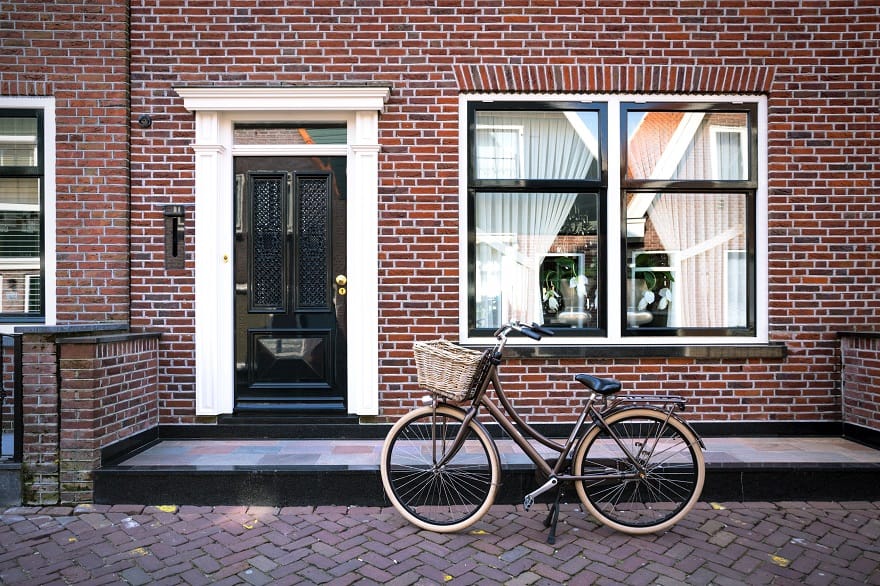
If you’re a non-resident, but you are covered by international health insurance, you can take advantage of the country’s healthcare services. Then again, if you have intentions of living in the country, taking out Dutch private insurance is a wise idea since such an insurance system is the basis of the country’s healthcare system.
No, there’s no such thing as free healthcare in the country. Everyone who works or lives here needs to subscribe to private health insurance.
Because there’s no difference between the private and public healthcare spheres, the citizens can freely choose the healthcare provider they want to work with. The country’s public healthcare will not cover anything. This leaves the private insurers to provide a standard package of services that only covers the basic medical necessities.
Regardless of your lifestyle or pre-existing conditions, you will not be denied the basic medical package. You can also add more services like dental care and physiotherapy. Those who are under 18 are automatically insured with no add-on fee. Elderly and long-term care is covered by WLZ, a form of social insurance. Families and individuals with low incomes are eligible for allowances in the form of health insurance benefits.
In the Netherlands, while the government is responsible for the accessibility and quality of healthcare, they don’t manage it. They only get to decide what needs to be part of the primary insurance packages. They, however, cannot designate the price for the healthcare premiums.
The main reason why the country’s healthcare is so expensive is simply because of its strong economy and the local medical staff’s increasing salaries. Aside from these, their population is ageing; thus, requiring more care and necessitating new medicines to keep up with the standard policies.
Unlike their healthcare system, education in public institutions in the Netherlands is free. Children of ex-pats can also take advantage of such free education offered in these schools. Bilingual schools are also prevalent in the country, most especially for students at the secondary level.
The schools in the country also offer adaptation programs suitable for young kids that cannot speak Dutch. But you have to take note that while this will serve your child, now, language is still a crucial factor in one’s everyday school life. Therefore, it is more helpful if you choose an option that teaches them to speak the country’s national language. They can adjust better with their peers in this case - something genuinely beneficial when you intend to live in the country permanently or for a long time.
Private schools are not common in the country since most kids, even those born from the monarch’s family, are schooled in public institutions. These private schools are usually left for kids with special needs or those non-Dutch speaking international students.
The Netherlands encourages all international students to study and speak their language. They even run programs to help these non-nationals cope with the country’s schooling system.
Private schools are for kids who are not comfortable speaking and learning Dutch. The main differences between both institutions include fees and medium of instruction. The rest is highly similar.

The answer to this question is simple - public schools. As mentioned above, the only difference between the private and public schools in the country are the cost and medium of instruction. So, if you’re looking for a less costly alternative to private international schools, send your kids to a public school in the Netherlands.
Moving to a different country can be daunting, and if you don’t get on top of things it can become quite stressful. Moving to the Netherlands presents its own set of unique challenges, but if you follow the guidelines we have provided, we feel certain you can experience a smooth relocation to the Netherlands.
You can start the ball rolling by completing our simple form, allowing international movers to get started on your quotation, today!
Note: This document is provided as a guide for people moving to the Netherlands and for information purposes only. Customs regulations can and do change at any time, usually without notice. Your mover will provide you with more information.
